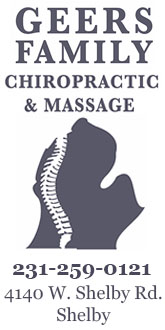
Lisa Weber, left, and Lisa Kimes
ESD team provides support for autism from childhood into adulthood.
By Stephanie Wagner, MCP/OCP writer.
West Shore School News is a presentation of the West Shore Educational Service District in coordination with Mason County Press/Oceana County Press.
In 1990, approximately 1,200 students in Michigan met the educational disability criteria for autism support services. By 2018, that number had increased to 21,550. Locally, West Shore Educational Service District provides these supports to 93 students and their educational team, but there are likely many more adults in our community who struggle with an autism spectrum disorder (ASD) symptoms.
According to the National Institute of Mental Health, people with ASD have difficulty with social communication and interactions, restricted interests, and repetitive behaviors. These symptoms are severe enough to impact their ability to function in school, work, or other areas of life. It is considered a “spectrum” disorder because of the wide variation in severity of symptoms. West Shore ESD serves children who are impacted in the educational setting.
These students are supported through two teacher consultants specializing in autism supports, Lisa Kimes and Lisa Weber. They each have over 25 years of experience providing special education services, and between them, over 30 specific to autism.
 “Our role is primarily to support the local school district staff in implementing evidence based universal supports for students with autism,” says Kimes.
“Our role is primarily to support the local school district staff in implementing evidence based universal supports for students with autism,” says Kimes.
In addition to the ASD teacher consultants, school social workers, speech-language pathologists, occupational therapists, and many others also work with students and staff to support the unique needs of the student.
“It is important to understand the difference between a medical diagnosis of autism and an educational qualification for special education services. A person can meet the medical diagnosis and receive an insurance benefit, but not need any support in the school setting.”
“We don’t really have a good way to measure the number of people who have autism that are not struggling educationally, or who might have graduated before we really understood it well,” adds Weber. “The CDC estimates one in 59 people in the general population have autism.
“We are fortunate to receive grant funding through the Department of Education to participate in a state-wide initiative called START (Statewide Autism Resources and Training Project) through Grand Valley State University. It has allowed us to access research-based practices, connect with our peers across Michigan, and participate in professional development opportunities. We are also able to offer our local school districts free trainings, needed supplies and materials, and incentives – it is a tremendous resource.
“There are four basic ‘pillars’ of START: Transition, Community Involvement, Peer to Peer Support, and Coaching and Professional Development. I work primarily with the younger students, where Lisa (Weber) works more with middle school, high school and those transitioning into post-secondary. We work closely together to provide professional development and coaching for our local school districts, as well as using the peer model to help our students with autism of all ages,” says Kimes.
This year, the the ESD added a new sector to their supports. Recently, the district was asked to provide autism awareness and helpful workplace strategies to local employers. Initially, information was presented to a group of human resource managers who meet monthly for lunch. Following that, one local employer requested they do an additional presentation for their supervisors.
“We were presenters for FloraCraft’s Ready SET Go! Initiative this past fall. It was a great opportunity to talk about general awareness, but more importantly to give some specific practices that might help supervisors increase both productivity and relationships in the workplace,” says Weber.
“We frequently say that typical strategies don’t work well for people with ASD, but strategies that work well for ASD are good for everyone,” adds Kimes.
Those strategies might include visuals, written instructions, predictable schedules, and social norms or cues.
“Areas that might have previously been considered deficits like being hyper-focused, rigid in routines, and struggling with social relationships can also be reframed as strengths in the workplace. They become detail-oriented, rule following, and not distracted by social dramas,” says Weber.
The pair hope their message spreads far and wide, from homes with infants and toddlers to school settings to college, training programs, and the workforce.
“Our friends, co-workers, and community members with autism are not to be feared. They are just like everyone else, and we all benefit from knowing what the expectations are of us in any given setting,” Weber says. “Our goal is that everyone, but especially those with ASD whether it is diagnosed or not, feel a part of their community. We want them to be life-ready, wherever that takes them.”
For more information about autism support services, please contact the West Shore ESD at 231- 757-3716.
The West Shore Educational Service District is funded through the support of taxpayers in Mason, Lake, and Oceana counties.
This story is copyrighted © 2020 all rights reserved by Media Group 31, LLC, PO Box 21, Scottville, MI 49454. No portion of this story or images may be reproduced in any way, including print or broadcast, without expressed written consent.
 (1).png)
.jpg)
-Mason-County-Press.png)




.png)









































.png)











